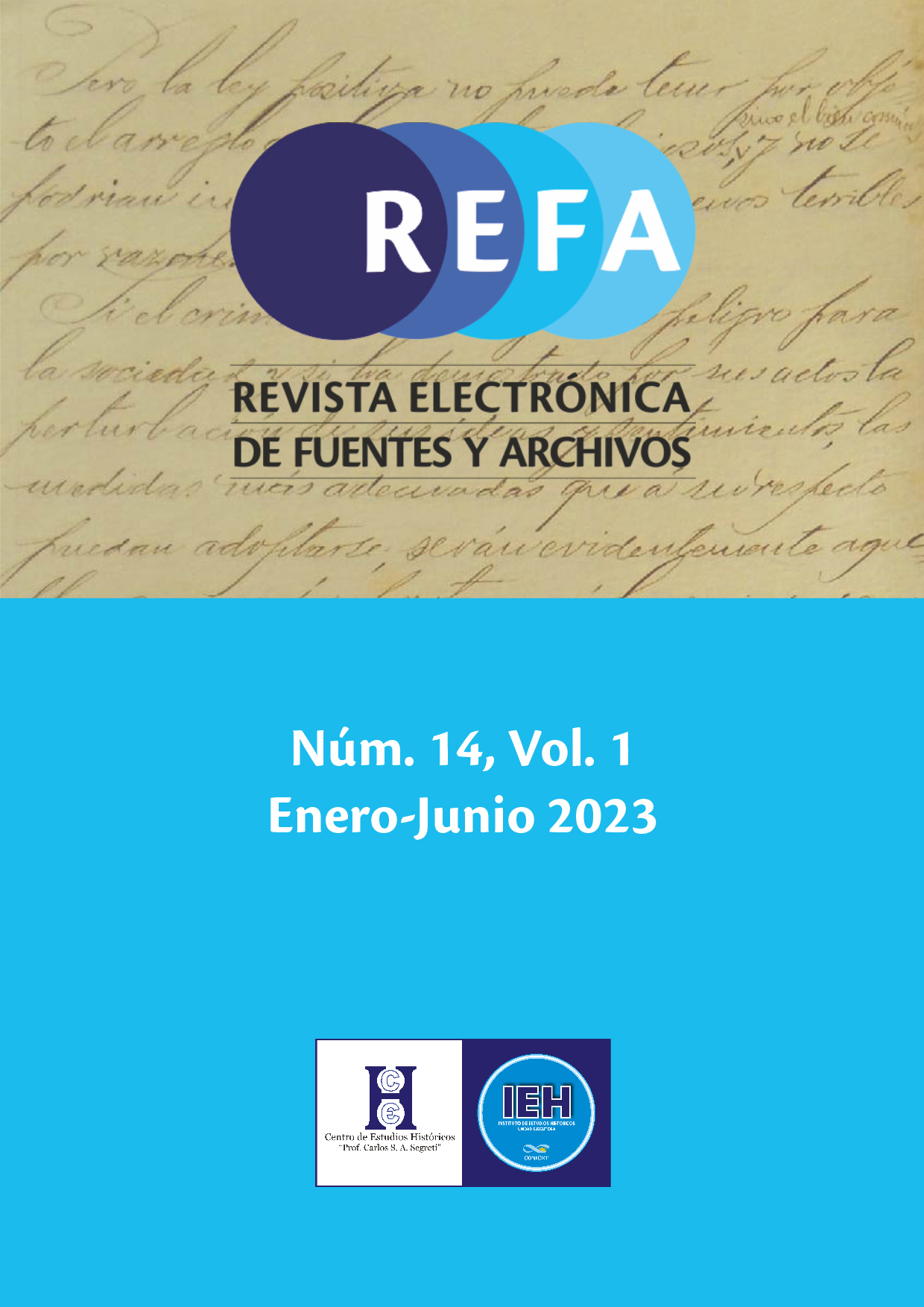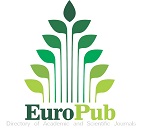Towards a critique of the uses of the archive. The case of an anonymous document associated with Arturo Jauretche among Perón’s papers
DOI:
https://doi.org/10.70629/1853.4503.v1.n14.41819Keywords:
archives, peronism, correspondence, criticismAbstract
This paper presents a preview of an ongoing research about the correspondence in exile of Juan D. Perón. The purpose is to show that access to the original documents could be essential to approach archives from a critical methodological perspective. A personal experience in which it was inferred the authorship of an anonymous document mistakenly associated to Arturo Jauretche will be narrated, and there will be critical review regarding the uses of archives that allow literal transcriptions of documents on different platforms. If archivists decide what should be preserved and what should be dismissed, and also how to organize the material offered to the public, academic investigations do not always make a critical use of the archives that would allow a review of those previous decisions. The main materials selected for this paper are documents from the Juan Domingo Perón Papers’ collection of the Hoover Institution, Stanford University, California.
Downloads
References
1. Baschetti, R. (2004). Documentos, 1970-1973. Volumen 1. De la guerrilla peronista al gobierno popular. La Plata: De la campana.
2. Bertolami, G. (2018). Evita e Juan Perón: lettere, documenti e cimeli [catálogo]. Roma: Bertolami Fine Arts.
3. Bloch, M. (2001). Apología para la historia o el oficio de historiador. México: Fondo de Cultura Económica.
4. Caimari, L. (2019). La vida en el archivo: goces, tedios y desvíos en el oficio de la historia. Siglo XXI Editores.
5. Caimari, L. (2020). El momento archivos. Poblacion y Sociedad, 27(2), pp. 222-233. https://doi.org/10.19137/PYS-2020-270210
6. Chiaramonte, J. C. y Klein, H. (Eds.) (2017). El exilio de Perón. Los papeles del archivo Hoover. Buenos Aires: Sudamericana.
7. Galasso, N. (2014). Jauretche, biografía de un argentino. Buenos Aires: Colihue.
8. Ginzburg, C. (2003). Tentativas. México: Universidad Michoacana de San Nicolás de Hidalgo. http://etnohistoriaenah.blogspot.com/2011/05/ginzburg-carlo-huellas-raices-de-un.html
9. Ginzburg, C. (2014). El hilo y las huellas: lo verdadero, lo falso, lo ficticio. Buenos Aires: Fondo de Cultura Económica.
10. Ginzburg, C. (2018). Cinco reflexiones sobre Marc Bloch. Rosario y México DF: Prohistoria y Contrahistorias.
11. Guerra, A. y Dimotta, N. (2017). Archivos personales: las intervenciones de productores, custodios y archivistas. Presentación de la experiencia de trabajo en la Biblioteca Nacional Mariano Moreno. En Primer Congreso Internacional / Segundas Jornadas de discusión “Los archivos personales: prácticas archivísticas, problemas metodológicos y usos historiográficos”. Buenos Aires: CEDINCI.
12. ICA. (s. f.). ¿Qué es un documento de archivo? ICA (International Council on Archives). https://www.ica.org/es/que-es-un-documento-de-archivo
13. Jelin, E. (2002). Los trabajos de la memoria. Buenos Aires: Siglo XXI.
14. Perón, J. D. (1983). Correspondencia 1. Buenos Aires: Corregidor.
15. Perón, J. D. (2020). 1967. Correspondencia, entrevistas, escritos, mensajes.
16. Petrucci, A. (2018). Escribir cartas, una historia milenaria. Buenos Aires: Ampersand.
17. Potash, R. (2018). Memorias. Una mirada retrospectiva. Buenos Aires: Edhasa.
Downloads
Published
Issue
Section
License
Copyright (c) 2023 Sergio Friedemann

This work is licensed under a Creative Commons Attribution-NonCommercial-ShareAlike 4.0 International License.
Se puede compartir (copiar y redistribuir el material en cualquier medio o formato) y adaptar (remezclar, transformar y construir a partir del material), siempre que: a) se cite la autoría y la fuente original de su publicación (revista, editorial y URL de la obra); b) no se use con fines comerciales; c) la distribución de las obras derivadas se haga con una licencia igual a la que regula la obra original.




















